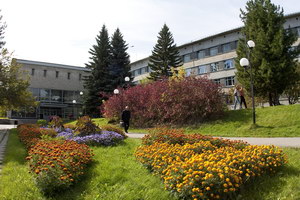The Development of a Method for Calculating the Nodal Prices of the Thermal Energy by Modeling the Thermal and Hydraulic Regimes of the Heat Supply Systems for Solving Control and Optimization Problems
The article deals with the issues of energy saving and increasing the efficiency of thermal energy. Energy saving issues are inextricably linked to the cost of heat for consumers. The costs of thermal energy transfer depend directly on thermal and hydraulic regimes of the heat supply system. A mathematical model and a method for calculating differential heat energy prices for all nodes and consumers of a heat supply system are discussed considering various heat production costs, the actual heat flow distribution, the location of the consumers in the network (the distance from the source), the structure and parameters of the network, and numerous internal and external disturbances of both a systematic and an accidental character. The above factors are taken into account by means of a thermo-hydraulic model for calculating the regimes of the heat supply system with intermediate temporal control nodes that serve as a basis for determination of the heat amount in every node at every time point. The proposed approach to the calculation of nodal prices can be interpreted as a method for solving the problem of distribution of the “price field” over the network for a given distribution of heat flows. The approach is based on three main principles, viz., the nodal balance of the heat cost, the equality of prices for the flows from the common node, and a differentiated increment of prices due to the variable component for the transfer of thermal energy for each of the sections of the calculation scheme. The proposed method for calculating the nodal prices of thermal energy can be used for multicriteria optimization of thermal and hydraulic regimes. The maximum utilization of the cheapest energy in the system or the minimum price of thermal energy for consumers can be the optimization criteria. The proposed approach makes it possible to differentiate prices within the regulatory period currently adopted in accordance with the process conditions of the heat supply system, namely, summer, autumn–spring, and winter conditions, including using peak-load sources. The operating modes have significant differences in the parameters of the heat-transfer medium, such as the flow rate and temperature of the network water. © 2018, Pleiades Publishing, Inc.
Библиографическая ссылка Shalaginova Z.I. The Development of a Method for Calculating the Nodal Prices of the Thermal Energy by Modeling the Thermal and Hydraulic Regimes of the Heat Supply Systems for Solving Control and Optimization Problems // Thermal Engineering . Vol.65. No.10. 2018. P.756-767. DOI: 10.1134/S0040601518100075
Проиндексировано: SCOPUS
Список ВАК


